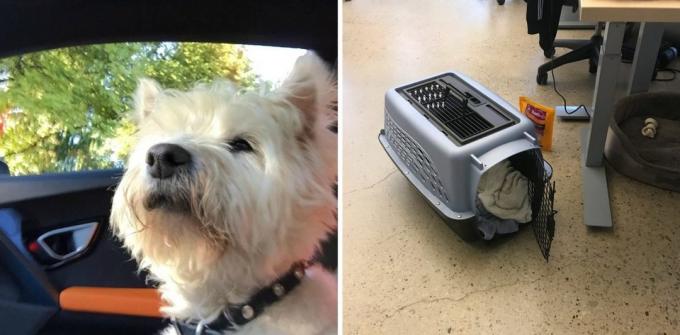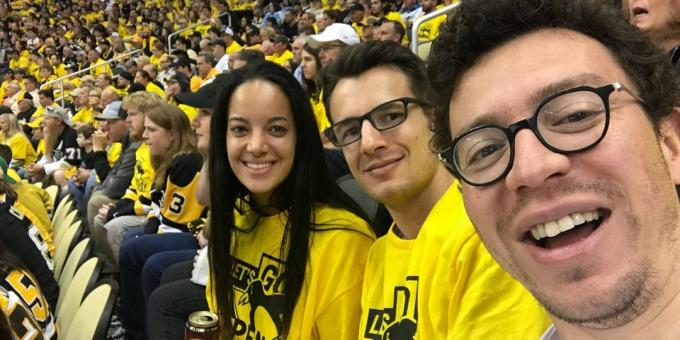Jobs: Luis von Ahn, co-founder of Duolingo
Workplaces / / December 27, 2019

Luis von Ahn
CEO and cofounder Duolingo. Ex-professor of computer science at Carnegie - Mellon University in Pittsburgh. He worked at Google. Together with Manuel Blum invented the CAPTCHA protection.
Louis, why you have chosen the educational startup?
The impetus was the fact that I was born in a poor country Guatemala, where high-quality educational opportunities only available to those who have money.
I decided to focus on the issue of language learning. To understand the scale: the world's 1.2 billion people who are learning a foreign language. However, about 800 million of them are learning English for the sole purpose - to get out of poverty.
In 2011, after several years of working at Google, I realized that I wanted to devote my life to the transformation of the education system, and co-founded Duolingo.
How many languages do you know?
Despite his position, I've always been pretty mediocre in learning languages. My native - Spanish, I speak in English and now decided to learn Portuguese. I practice it in traffic with the help of our platform.
Do you have an office, as befits a big boss?
My workplace is quite modest. :)

The main devices in my MacBook Pro and iPhone 7. Most of the work is done on a laptop, a smart phone usually use to communicate on the move.
I also like scooters. The free minutes can ride with the wind around the office.

However, what you wear to work the dog?
Yes, in a special bag-carrying. Her name is Bath, breed - West Highland White Terrier. She was already 16 years old, so I try to spend time with her as much as possible.

How do you organize your time?
I did not get a very good deal that takes months, but I'm fine doing that takes 15 minutes or half an hour.
Stick to short-term plans - my way of time management.
Every day I try to break things into smaller tasks. Often I make to-do lists on paper, to organize themselves and arrange dates. Using a pen and paper allows me to take a break from typing and very efficient trains memory.
How to start your day?
I wake up between five and six o'clock in the morning. I check email and begin to learn Duolingo figures for the previous day. It is still not decided, whether it is a good idea, because my mood before the end of the day depends on the data. But I continue to do so.
Then I have a 16-minute workout: run on the simulator at the maximum speed. This is the optimal solution in terms of time savings. Training finally wakes me up and gives energy. I feel fresh and ready for new challenges.
And you finish the day?
It all depends on what exactly I was doing during the day. If you come back late, just go to bed. If it remains a bit of free time, trying to finish the current work and home affairs, so as not to transfer them to tomorrow.
It's great to start the new day with a clean slate, without the burden of responsibility!
What do you do in your spare time?
I have it almost does not. But if there is, I prefer to travel and national cuisine. For example, earlier this year I made a gastronomic tour in Peru. I was very satisfied with the experience.
I'm also fond of soccer (European football) and sometimes on the weekends playing with colleagues. Generally Pittsburgh, where the headquarters of Duolingo, a fairly large sports center in the United States. People here love to attend the competition, with regardless of the type of sports: football, baseball or hockey. From time to time I go out and cheer on local teams.

What advice would you give to someone who teaches a foreign language from scratch?
Over the years, I do understand that there is no ideal language learning techniques. Moreover - they all contradict each other. Based on this, I can recommend to focus not on specific methods, and on their own motivation. No matter how, where and with whom you are learning the language. The main thing that you were passionate about the process. Pay attention to the game components - they will help to be involved and motivated.
What books do you recommend to read?
1. "The Design of Everyday Things" by Donald Norman
Before reading this book, I almost did not pay attention to design. But after reading I became obsessed with this topic.
The author clearly explains that if there is something you do not understand in the product, it is not because you are stupid, but because mistakes were made in the design phase.
Buy on the "liters» →
2. "High efficiency management" Andrew Grove
There are many books on how to become a better leader, written by people who have never been leaders. Andy worked for more than 30 years, CEO of Intel, and I recommend his book to all employees Duolingo. It is based on the tremendous experience of the author, how to become a manager of higher level.
By tradition - your readers farewell.
I want to share the best advice that I myself had ever received. It may not seem like a big deal, but it really helped me in my career.
If you are successful, be prepared for the fact that people will demand from you more time or money, or both.
With the experience for me has come to understand this thought. If I am asked to do something at the last minute (for example, to speak at the conference), and I would not want to, because it has to happen literally in the next week, it is better to refuse. This advice has helped me to share opportunities for those who deserve to devote their time, and those that have not got it.



